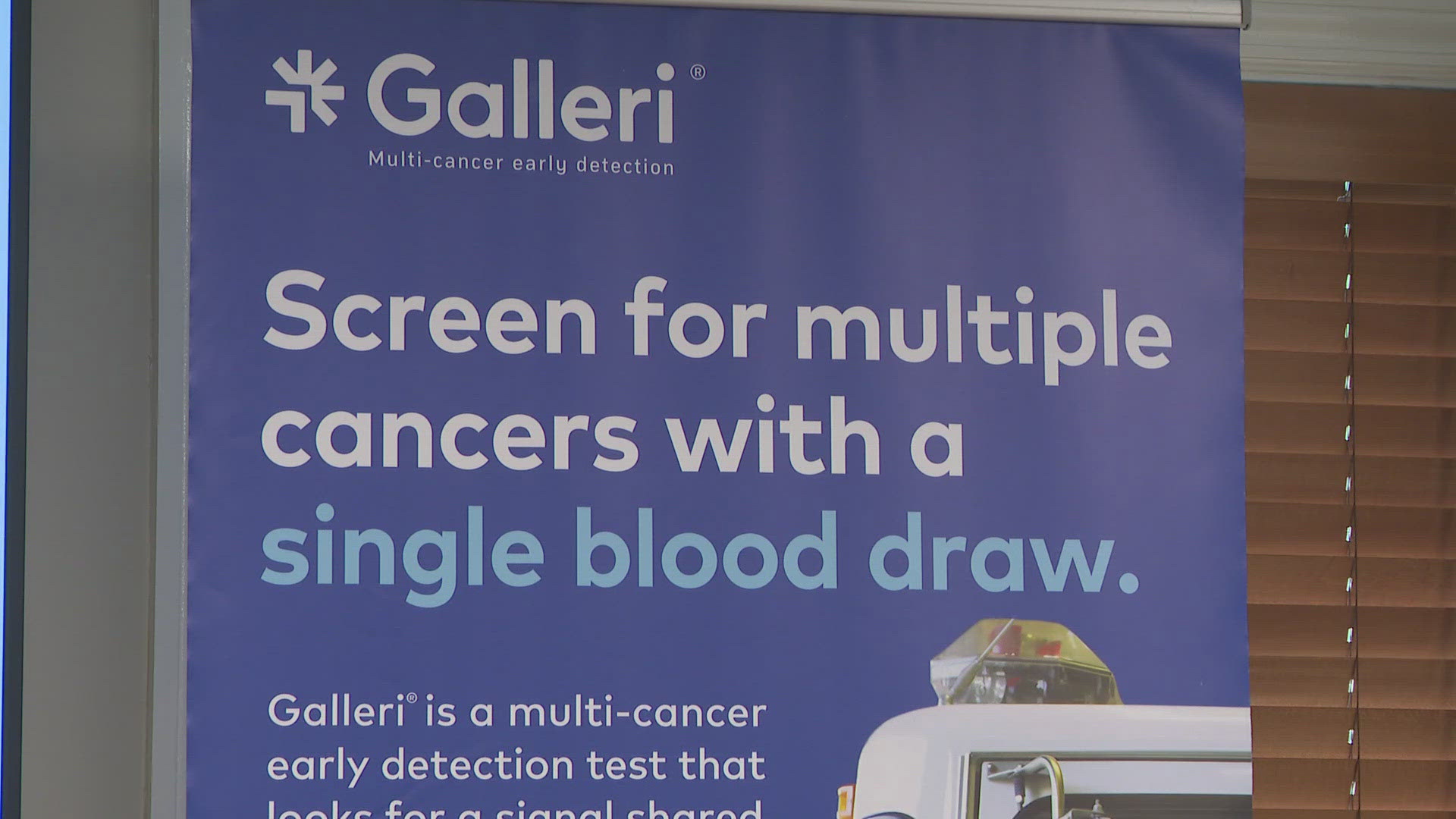CLEVELAND — In 2017, after four attempts, Ohio finally passed cancer presumption legislation for firefighters, recognizing cancer was indeed a risk of their profession and medical expenses should be covered by the Bureau of Workers Compensation.
Senate Bill 27 was named the Michael Louis Palumbo Jr. Act, after the Beachwood Fire Captain who'd been battling occupational brain cancer. He died a month after the law went into effect.
Since that time, 285 firefighters filed claims and 224 were approved, according to the Ohio BWC. Firefighters are known to be at much higher risk for cancer because of the many carcinogens they're exposed to during their jobs.
On average in the United States, one in two men and one and three women will be diagnosed with cancer in their lifetime, and many will be diagnosed in later stages when it is more difficult to treat. That’s why University Hospitals Seidman Cancer Center is now offering the Galleri test to Northeast Ohio patients and first responders.
"We are thrilled to be able to offer Galleri to eligible members of our community," Dr. Jordan Winter — director of surgical services at UH Seidman Cancer Center, the John and Peggy Garson Family Endowed Chair in Pancreatic Cancer Research, and the Jerome A. and Joy Weinberger Family Master Clinician in Surgical Oncology — said. "This test can screen for multiple types of cancer, including many without recommended screenings, potentially helping to detect a cancer signal before symptoms appear and the cancer has spread."
The Galleri test is a first-of-its-kind MCED blood test. In a clinical study, it demonstrated the ability to detect a signal shared by more than 50 types of cancer, over 45 of which lack recommended screening tests today.
Galleri is intended for people with an elevated risk of cancer, such as those aged 50 or older, and is to be used in addition to recommended cancer screenings. While it's not FDA-approved as of yet, it is commercially available and costs around $950, according to Winter.
It's not perfect, and Winter says there is a chance of false positive or negative results. But the technology is improving at rapid speed, and he expects this to become part of regular testing in the near future. That's why it's also important for the test to be evaluated by a professional and additional testing considered, as well.
The test works with blood samples and results take two to three weeks. The UH EMS Training and Disaster Preparedness Institute is offering the testing to Northeast Ohio Fire Departments, and those interested in learning more can contact them HERE.
Important Galleri Safety Information
As mentioned, the Galleri test is recommended for use in adults with an elevated risk for cancer. It does not detect all cancers and should be used in addition to routine cancer screening tests recommended by a health care provider
Galleri is intended to detect cancer signals and predict where in the body the cancer signal is located. Use of Galleri is not recommended in individuals who are pregnant, 21 years old or younger, or undergoing active cancer treatment.
Results should be interpreted by a health care provider in the context of medical history, clinical signs, and symptoms. A test result of Cancer Signal Detected does not rule out cancer, and also requires confirmatory diagnostic evaluation by medically established procedures (i.e., imaging) to confirm cancer.
If cancer is not confirmed with further testing, it could mean that cancer is not present or testing was insufficient to detect cancer, including due to the cancer being located in a different part of the body. False positive (a cancer signal detected when cancer is not present) and false negative (a cancer signal not detected when cancer is present) test results do occur.
Laboratory/Test Information
The GRAIL clinical laboratory is certified under the Clinical Laboratory Improvement Amendments of 1988 (CLIA) and accredited by the College of American Pathologists. The Galleri test was developed, and its performance characteristics were determined by, GRAIL. It has not been cleared or approved by the U.S. Food and Drug Administration.
The GRAIL clinical laboratory is regulated under CLIA to perform high-complexity testing. The Galleri test is intended for clinical purposes.

